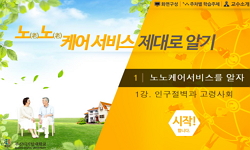This research is designed to identify factors that affect life satisfaction of the Korean elderly by studying residential environments and individual personalities as independent variables, and life satisfaction of the elderly as a dependent variable....
http://chineseinput.net/에서 pinyin(병음)방식으로 중국어를 변환할 수 있습니다.
변환된 중국어를 복사하여 사용하시면 됩니다.
- 中文 을 입력하시려면 zhongwen을 입력하시고 space를누르시면됩니다.
- 北京 을 입력하시려면 beijing을 입력하시고 space를 누르시면 됩니다.
https://www.riss.kr/link?id=A100260336
- 저자
- 발행기관
- 학술지명
- 권호사항
-
발행연도
2014
-
작성언어
English
- 주제어
-
등재정보
KCI등재
-
자료형태
학술저널
-
수록면
149-156(8쪽)
- 제공처
- 소장기관
-
0
상세조회 -
0
다운로드
부가정보
다국어 초록 (Multilingual Abstract)
This research is designed to identify factors that affect life satisfaction of the Korean elderly by studying residential environments and individual personalities as independent variables, and life satisfaction of the elderly as a dependent variable. It also includes emotional and instrumental support to describe relations between variables as mediating variables. It utilizes a questionnaire survey as its research method and studies those aged 65 and over living in urban, suburban and rural areas. In addition, regression and path analysis is used to identify casual links between different variables. The results are as follows: (1) Direct factors that impact emotional support are home ownership (direct effect= -.18) and transportation services (.15). That is, those who own their home and have easy access to public transpiration show increased levels of emotional support. (2) Direct factors that affect instrumental support are economic status (direct effect= .311) and living arrangement (.17). In other words, those who are financially stable and live with their children have more instrumental support. (3) Factors linked directly to life satisfaction of the elderly are their age (direct effect= -.10), health status (.19), economic status (.25), region of living (.22) and housing type (.19). (4) Among the mediating variables, emotional support has direct effect (.45) while instrumental support has indirect effect (.16)
목차 (Table of Contents)
- Abstract
- 1. INTRODUCTION
- 2. LITERATURE REVIEW
- 3. METHOD
- 4. RESULTS
- Abstract
- 1. INTRODUCTION
- 2. LITERATURE REVIEW
- 3. METHOD
- 4. RESULTS
- 5. CONCLUSION
- REFERENCES
동일학술지(권/호) 다른 논문
-
- 대한건축학회
- Hae Jin Kang
- 2014
- KCI등재
-
Constructing Housing Management Toward Its Professionalization in Korea
- 대한건축학회
- Hyunjeong Lee
- 2014
- KCI등재
-
- 대한건축학회
- Jihee Ha
- 2014
- KCI등재
-
A Study on the Spatial Characteristics of Smart Work Centers in Korea
- 대한건축학회
- Sanghoe Koo
- 2014
- KCI등재





 DBpia
DBpia







